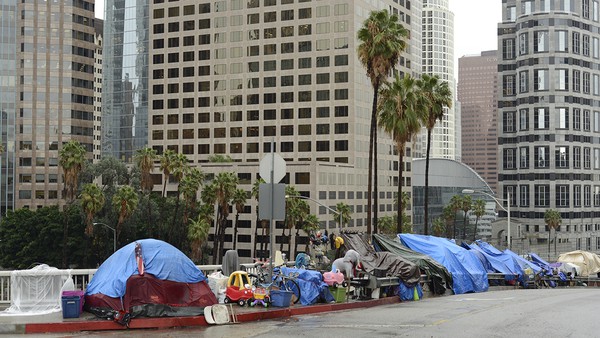Last month, the World Health Organization released a scientific brief about yet another side effect of the global COVID-19 pandemic. According to the report, “global prevalence of anxiety and depression increased by a massive 25 percent.”
Factors involved in this downturn in mental health include loneliness, fear of illness, grief after bereavement, and financial worries. But the effects of the pandemic have not been felt evenly. Young people are disproportionally at risk of self-harming behaviors; people with pre-existing physical health conditions have been more likely to develop symptoms of mental disorders, as have women. For health workers, exhaustion has triggered suicidal thinking.
In this week’s newsletter, California Local reports on the mental health crisis—its historical roots, a new approach proposed by Gov. Gavin Newsom, as well as a guide to local mental health resources.
Asylums, Inmates and a Reform Movement Gone Wrong
Reporter Jonathan Vankin dives into the history of mental health treatment in California, from its early years to the deinstitutionalization movement, which sought to move mental patients out of state institutions—an effort kicked off in 1963 when President John F. Kennedy signed the Community Mental Health Act. After his death, enthusiasm for funding a national network of community treatment centers dried up—leaving thousands of mentally ill Californians on the street.
Newsom’s Case for CARE Courts
We also look at Governor Gavin Newsom’s plan to get more mentally ill Californians into treatment programs. Under Newsom’s proposal, all 58 California counties would be required to augment their court systems with a Community Assistance Recovery and Empowerment Court that would handle cases involving individuals who need treatment for mental illnesses but either can’t or won’t seek it out.
Clinics, Support Groups, Hotlines ... Help Is Out There
Santa Cruz County struggles with a large homeless population, some of whom are afflicted with mental illnesses. But they’re hardly the only members of society who can find themselves in crisis. Below is a link to California Local’s guide to mental health resources, including services provided by the county and nonprofit groups such as the National Alliance on Mental Illness. If you know of a program or service that should be included, click on the “Keep It Fresh” boxed item to the right of the article, and send us a note.
Finding Piece of Mind

Feeling stressed? Confused? Or just a little blue? Help is just a phone call away for residents of Santa Cruz County.
Get to Know a Group
Big Brother Big Sisters provides children facing adversity with strong, enduring, professionally supported mentorship. The organization believes that all children can achieve success when given the proper tools and resources—and volunteer mentors are among the most important of those resources.
→ Learn more








